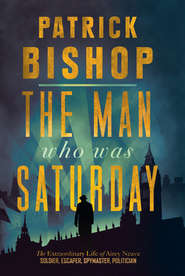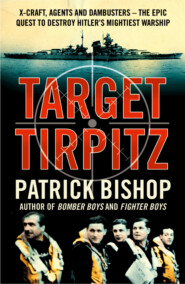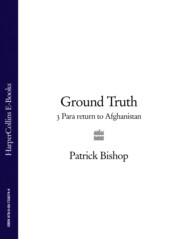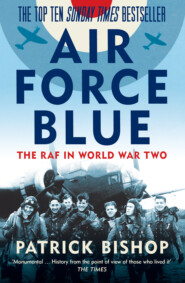По всем вопросам обращайтесь на: info@litportal.ru
(©) 2003-2024.
✖
The Reckoning: How the Killing of One Man Changed the Fate of the Promised Land
Настройки чтения
Размер шрифта
Высота строк
Поля
Though Stern was becoming increasingly resistant to discipline, the order could not be ignored. He and Roni prepared for an immediate return. Before they left, Lily Strassman took Roni shopping for clothes. Stern had decreed that his wife dress only in Zionist colours and in accordance with his wishes she bought a blue coat. As they headed south the patriotic wardrobe expanded. In Lvov he bought her blue and white shoes and in Costanza a blue and white blouse.
According to Roni, his nerves were on edge throughout the voyage. What if the police were waiting for him at Haifa? But they passed through immigration unchallenged and were soon ensconced in the Yarden Hotel in Tel Aviv’s Ben Yehuda Street, a broad boulevard that ran parallel to the sea. Stern was still cautious. He told Roni not to leave the hotel in case she ran into friends who would want to know why she was back from Poland so soon. He, too, stayed inside, slipping out at nightfall to meet his Irgun cohorts. After two weeks the couple moved out to an apartment on Rothschild Boulevard, rented in Roni’s maiden name.15 (#litres_trial_promo)
Strelitz appointed Stern as his deputy with responsibility for propaganda as well as the intelligence section. He was also to act as the main link between Palestine and the European organization and to oversee the considerable funds brought in from the Irgun-organized illegal immigration. Stern was soon at work explaining the rationale of a spate of deadly attacks on Arabs. On the morning of 29 May an Irgun squad led by a firebrand called Moshe Moldovsky entered the village of Bir Adas on the coastal plain near Jaffa apparently looking for ‘gangsters’. They shot dead five Arabs, four of them women. Jabotinsky had opposed mounting attacks to protest at the White Paper and first heard about the operation from a British newspaper. He dispatched an angry letter to Strelitz demanding an explanation. It read: ‘An order: The Times reports that at Bir Adas four women were killed with the use of a revolver and those who were shot were found not outside the house but inside. That means that they intended to target the women. If this is a lie you must immediately deny it. If it is true you must punish those responsible and inform me what the punishment is.’16 (#litres_trial_promo)
There was no denial and no one was punished. The account of the incident put out by Stern was a fiction in which a group of their men had chased off an Arab band that had been sheltering in Bir Adas and went on to ‘conquer’ the village. The bulletin mentioned nine wounded Arabs but no dead women.17 (#litres_trial_promo) Stern turned the event into a great symbolic victory, which had taken the struggle into the Arab heartland. ‘Our enemy today is the Arabs,’ he wrote. ‘By our reprisals … first within the Hebrew Yishuv, then on the borders of the Arab area and in the end by penetrating to pure Arab areas like Bir Adas we will uproot the feet of the hateful Arab spy.’18 (#litres_trial_promo) His attitude towards the Arabs was simple. The issue of who owned Palestine would be decided by force and rightly so. The Arabs had after all won the land by conquest and intended to rule it for ever. Now it was time for the Jews to win it back.
The logic was that every Arab was an enemy and therefore a legitimate target. On the same day as the Bir Adas action another operation was mounted in Jerusalem which showed that Strelitz and Stern had now abandoned any pretence that Irgun violence was directed only at the guilty. It was devised by Roni Burstein’s twenty-one-year-old cousin Yaacov ‘Yashke’ Levstein, who had chosen to study chemistry at the Hebrew University in order to gain expertise in bomb-making. He had also learned how to handle explosives at an Irgun training camp in Poland. The plan was to plant bombs in the Arab-owned Rex cinema during an evening showing of a Tarzan film, when the auditorium would be packed. The operation would be carried out by four men and three women from the Irgun cell in Jerusalem. They were chosen because of their dark looks, which enabled them to pass as Arabs, and, as Levstein gleefully recounted, they played their parts to perfection. One, Mazlia Nimrodi, ‘was groomed like an Arab, perfumed, his hair sleeked, a colourful handkerchief in his chest pocket, his shoes glistening. He had expensive English cigarettes in his pockets, an Arab favourite.’19 (#litres_trial_promo)
Nimrodi was a Sephardi tailor who spoke Arabic. He had sewn the special jacket packed with explosives which would cause the initial blast. The other members of the team posed as courting couples. The women each carried a box of ‘chocolates’ inside which was a tin containing a charge of gelignite, nails and metal shards. Just before the film began, Nimrodi got up from his seat in the stalls, leaving his jacket hanging on the back of the seat in front of him, and left the cinema. Seven minutes later, at 8.30 p.m., the bomb exploded. The couples in the balcony then threw their chocolate-box bombs into the screaming, panic-stricken mass below.
Вы ознакомились с фрагментом книги.
Приобретайте полный текст книги у нашего партнера:
Приобретайте полный текст книги у нашего партнера:











